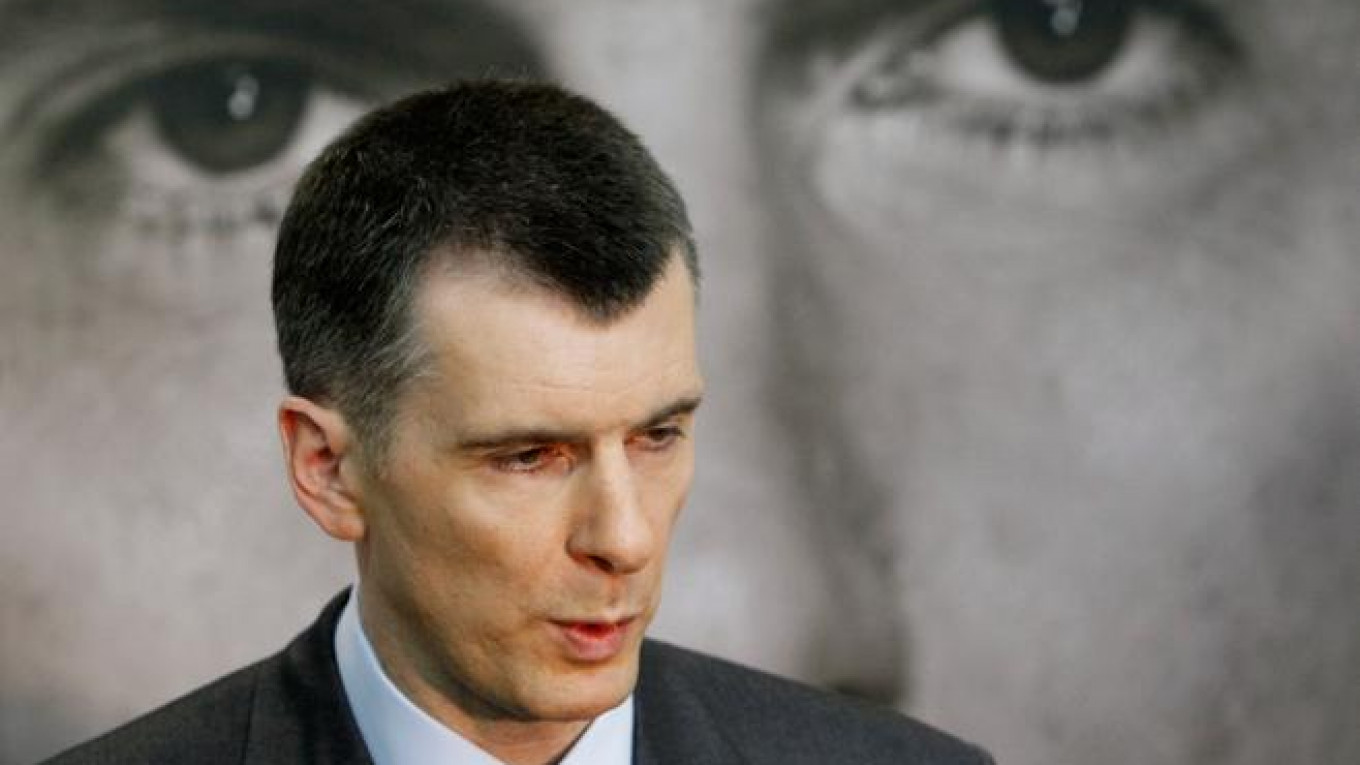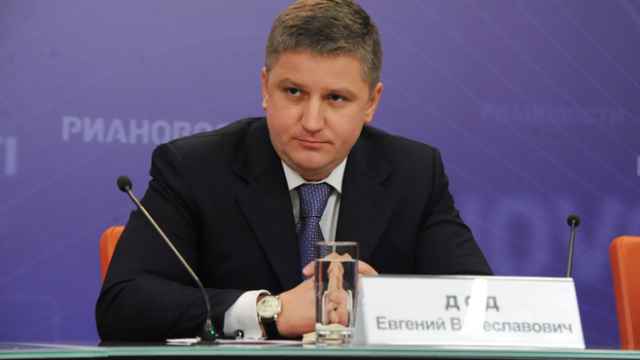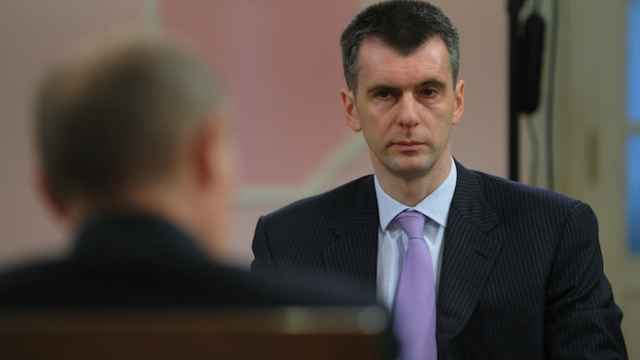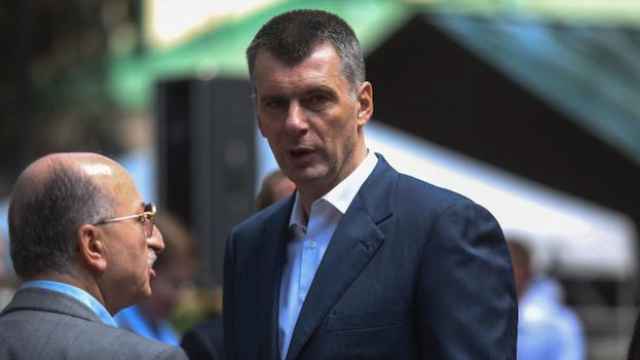Russian tycoon Mikhail Prokhorov once said he likes to completely overhaul his professional life every eight years.
And so things have turned out.
In the 1990s, Prokhorov was a banker, scooping up a business empire on the cheap in the county's chaotic privatizations. At the turn of the millennium, he quit bank boardrooms to became an industry boss, heading Norilsk Nickel, a city-sized mining corporation in northern Siberia in which he owned a major stake.
Then, in 2007, he reinvented himself once again. The 6-foot 8-inch bachelor launched a reputation as a playboy when French police briefly arrested him for a supposed romp with prostitutes at the ski resort of Courchevel. Then he quit Norilsk and split with his business partner, the tycoon Vladimir Potanin, walking away with some $9.5 billion. The timing of the sale was fortunate, happening just before markets crashed in 2008. It turned Prokhorov into Russia's richest man.
Prokhorov used his wealth to create a new business empire, purchase a New York basketball team and become a public figure. He bought a media company and briefly became a politician, running for president against Vladimir Putin.
Now, eight years on, rumors are circulating that Prokhorov, 51, is at it again.
Sell-Off?
In early July, Vedomosti, a respected Russian business daily, ran a banner headline: "Mikhail Prokhorov Is Selling All His Russian Assets." The story was based on multiple unidentified sources. It implied that the Kremlin was pressuring Prokhorov to sell.
If true, it meant that billions of dollars were about to change hands. Through his investment firm, Onexim, Prokhorov owns stakes in aluminum giant RusAl, potash producer Uralkali and power generator Quadra. Onexim owns financial firms Renaissance Credit, Renaissance Capital, IFC Bank and the insurer Soglasie. And it controls RBC, one of the country's largest media companies.
Prokhorov's fortune has dwindled from $19.5 billion in 2008, but he is still worth $7.6 billion, according to Forbes magazine. Much of that is wrapped up in Russia.
According to Onexim, however, the Vedomosti report had got it all wrong. "Our assets are constantly in a state of transition and we are always in the process of negotiations," Onexim's chief, Dmitry Razumov, said in a statement. Onexim has tried to sell stakes in a number of its companies in recent years. Vedomosti supposedly got wind of some of these talks and mistakenly joined the dots. The conclusion that a full sell-off was underway was wrong, Razumov said. "No such decision has been made."
Meanwhile, Kremlin spokesman Dmitry Peskov dismissed claims of pressure as "complete rubbish."
But these denials did little to stop the rumor mill. In recent months, Onexim has been in very public conflict with the authorities. In April, armed men, some of them in masks, raided the offices of Onexim and a number of its subsidiaries. Russia's security service, the FSB, said they were investigating a small lender that Onexim had recently acquired. Few believed it.
The real reason, say insiders, was that RBC's investigations into Putin's money and family had touched a nerve in the Kremlin.
Within weeks of the raids, RBC's top editorial staff had quit or been fired. But many thought that the pressure would not stop at that. If Prokhorov had really antagonized Putin, the logic went, it's time to get out.
A source close to Prokhorov paints a more positive picture. Yes, the Kremlin was unhappy with RBC's editorial line, which it saw as unfair and subjective. But the dismissals have ended the dispute. "Whatever that discontent [with RBC] was — and it was a long-term back and forth thing — it has been put to bed," the source said.
There is no imperative from the Kremlin to sell RBC or other Onexim assets , said the source close to Prokhorov and another source close to Onexim's top management.
However, a third source, also close to the top management, was less sanguine. According to this source, the situation remains unstable. Onexim's managers "are still figuring out exactly what the situation is and whether the Kremlin is really after them, which would mean there's no future for them in Russia," the source says. "Everything depends on how deep [the Kremlin's] resentment goes."

Nervous Partners
Whatever the truth, headlines that Prokhorov is getting out of the country do have consequences. Russia is an unpredictable place where decisions are often made behind closed doors, and the Vedomosti report spooked Onexim's partners.
"All of our partners get nervous," said one of the sources close to the management. Senior executives have had hundreds of conversations to calm their colleagues since Vedomosti's report went to press.
These partners have been reassured, says the source. But the broader public and investment community draw their own conclusions — and as a rule they are negative.
Some say business rivals who are better connected than Prokhorov are keeping the pressure on to scare him into selling assets cheaply. Others insist the headlines about Prokhorov leaving Russia are meant to brand him as a deserter and sabotage his chances of returning to politics. One source with close links to the Kremlin said: "He's tired … His affairs here aren't going well, there is huge pressure, it's time to close shop."
Whether true or not, all of that has an effect on the investment climate. "The whole business community gets very worried when a big businessman loyal to the Kremlin is forced out or persecuted," says Anders Aslund, an economist and Russia specialist at the Atlantic Council in Washington.
Prokhorov wouldn't be the first to leave. In fact, he and his erstwhile partner Vladimir Potanin are the last of the big 1990s oligarchs to remain more or less full-time in Russia. Some, like Boris Berezovsky and Vladimir Gusinsky, were forced to flee by political pressure. Others, such as Mikhail Fridman and Roman Abramovich, have simply diversified overseas.
People who know Prokhorov say he's calm, relaxed and wants to stay in Russia, where he spends 95 percent of his time.
But the mood outside is different. One Russian online newspaper reader left a comment under the report that Prokhorov was selling. "The spiders in the jar are at each other's throats," the comment read.
Many others are likely to see it in the same way.
A Message from The Moscow Times:
Dear readers,
We are facing unprecedented challenges. Russia's Prosecutor General's Office has designated The Moscow Times as an "undesirable" organization, criminalizing our work and putting our staff at risk of prosecution. This follows our earlier unjust labeling as a "foreign agent."
These actions are direct attempts to silence independent journalism in Russia. The authorities claim our work "discredits the decisions of the Russian leadership." We see things differently: we strive to provide accurate, unbiased reporting on Russia.
We, the journalists of The Moscow Times, refuse to be silenced. But to continue our work, we need your help.
Your support, no matter how small, makes a world of difference. If you can, please support us monthly starting from just $2. It's quick to set up, and every contribution makes a significant impact.
By supporting The Moscow Times, you're defending open, independent journalism in the face of repression. Thank you for standing with us.
Remind me later.






